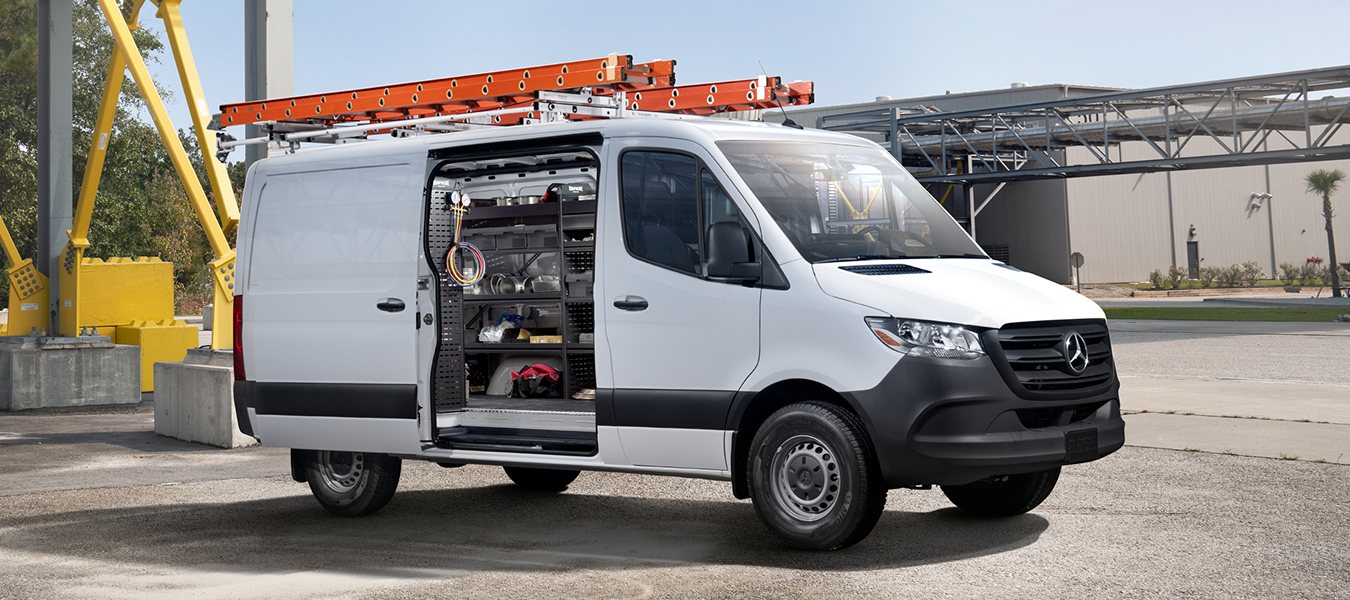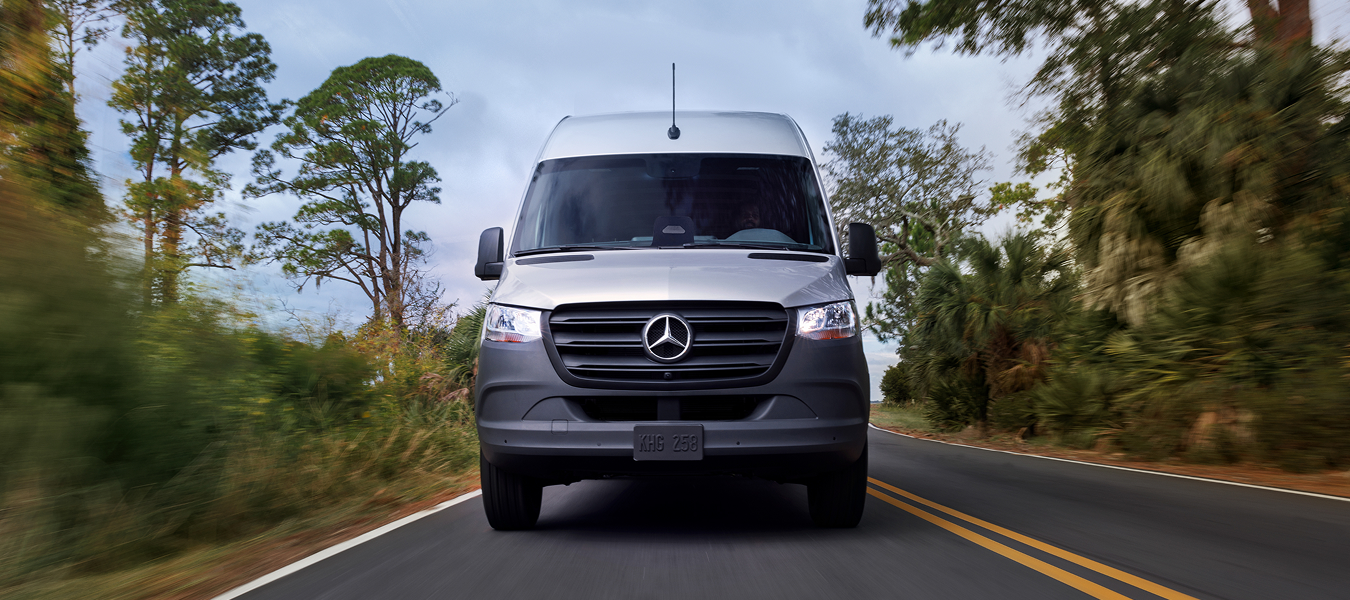Section 179 Tax Savings
Now’s the time to invest in a Mercedes-Benz van.
Drive your success with a new Sprinter van and enjoy the returns this tax season. Purchase before year’s end and your business may qualify to deduct up to $31,300 through Section 179* and/or up to 100% of the purchase price through Section 168(k).** Explore inventory today!

Tailored upfitting for every need.
Your business is unique. Whether you’re an HVAC contractor or a custom bike shop, our knowledgeable team can help you find the right configuration to meet your business needs.

Powertrains that perform.
Mercedes-Benz Vans offer the best solutions for your business, whether you need the long-lasting power of diesel or the cutting-edge performance of electric vehicles. We’re here to help you thrive with options designed to help reduce costs and drive your success.

Section 179 Tax Deduction for Small-Medium Businesses
The Section 179 tax deduction is a provision in the U.S. tax code that allows small to medium-sized businesses to deduct the cost of certain qualifying assets, including vehicles, from their taxable income in the year the assets are placed into service. This deduction is designed to encourage business investment and stimulate economic growth.
Eligibility
Your business must meet certain criteria, including total equipment purchases of less than $4,270,000. Additionally, the equipment must be in service within the current calendar year and used for business purposes more than 50% of the time.
Qualifying Assets
Not all vehicles qualify. Generally, vehicles with a gross vehicle weight rating (GVWR) of more than 6,000 pounds are eligible, including many larger vans, trucks, and SUVs. The Mercedes-Benz Sprinter van and G-wagon often qualify.
Mercedes-Benz of Stockton Service Area
We proudly serve businesses in Lodi, Manteca, Elk Grove, Tracy, Brentwood, Galt, and Rippon, helping them take advantage of the Section 179 tax deduction with the right commercial vehicles.

Section 179 Tax Deduction FAQs
Which Mercedes-Benz Models Qualify?
Any vehicle with a GVWR over 6,000 pounds. GLE, GLS, G-Wagon, Any Sprinter Van models.
How long do you have to keep a vehicle?
Section 179 does not specify a minimum time. The vehicle must be used for business purposes at least 50% of the time.
What is Section 179?
Section 179 allows businesses to deduct the cost of qualifying property, including commercial vehicles, in the year they are placed in service instead of depreciating it over several years. It encourages business investments by providing tax incentives.
How does Section 179 work?
Businesses can deduct the full purchase price of qualifying assets, up to a certain limit, in the year they are acquired and put into service.
*$6,573 tax savings based on 21% federal corporate tax rate and eligibility to claim full $31,300 IRS Section 179 tax deduction for qualified vehicles. Your tax rate and eligibility may vary. Please consult a tax professional for more information on your federal tax rate and potential savings available to you for qualifying purchases. This information does not constitute, nor is it intended to be, legal, tax, financial planning or investment advice and should not be relied upon as such. $31,300 tax deduction for qualifying vehicles based on current Section 179 of U.S. tax code and maximum deduction permitted for such vehicles under Section 179. Vehicle must be purchased for business use. Please consult your tax advisor.
**Tax incentives, including Section 179 and Section 168(k), may be available for qualifying vehicles. Please note Section 168(k) is only eligible for purchases after January 19, 2025. Taxpayers may be entitled to U.S. federal income tax deductions and/or credits for purchases of vehicles that are placed in service in a trade or business during 2025. Determining the proper income tax treatment of any vehicle purchase requires careful consideration of several factors including, but not limited to, the applicable laws, regulations, and guidelines, the characteristics and attributes of the particular vehicle purchased and the purchaser’s income tax situation. Each purchaser’s tax situation is unique and the available tax benefits and the applicable federal tax laws, regulations and guidelines are subject to change without notice. Therefore, customers must consult their tax advisor to determine the proper tax treatment of any vehicle purchase(s). For more information, visit www.irs.gov. This information does not constitute, nor is it intended to be, legal, tax, financial planning or investment advice and should not be relied upon as such.
